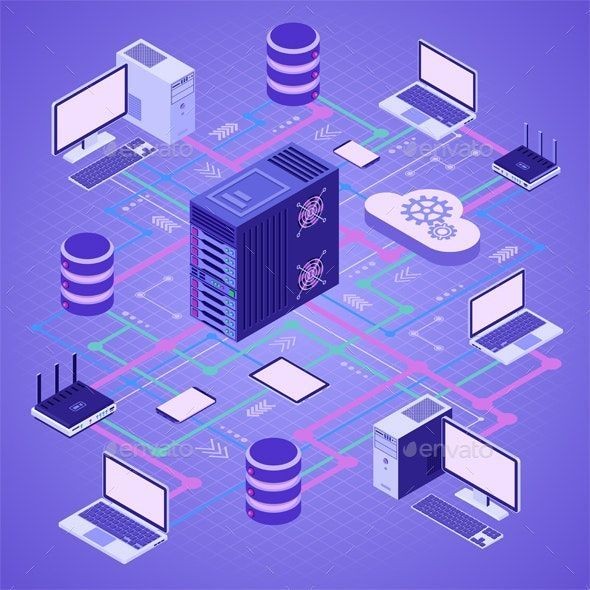Networking Knowledge: Not a Prerequisite, But Your Secret Weapon for Cloud Mastery
 Salome Githinji
Salome Githinji
As I begin and continue my cloud computing journey, completing assessments and practical exercises, one thing has become clear: networking knowledge, while not an absolute must-have when starting, is a powerful tool that can significantly enhance your cloud proficiency. If you're just beginning, you might wonder how deeply you need to dive into networking concepts especially because how it is taught in a university setting can be a rushed unit and the university curriculum doesn’t really cover the practical part of networking. The answer depends on your goals, but here's why understanding networking will make you a more capable cloud professional.
1. Why Networking Isn't a Must-Have at the Start
When you first start learning cloud computing, many of the essential tasks and operations you engage with may not require in-depth networking knowledge. Platforms like AWS, Azure, and Google Cloud have user-friendly interfaces and managed services that simplify tasks such as setting up virtual machines, deploying applications, and configuring databases. These services abstract much of the underlying networking complexity, allowing you to focus on application development, infrastructure setup, or cloud storage without needing to know the intricacies of routing tables, subnets, or firewall configurations.
This ease of use is fantastic for beginners because it allows you to get hands-on experience with cloud environments without feeling overwhelmed by networking jargon. At this point, having a basic understanding of networking concepts like IP addresses, DNS, and security groups may be sufficient to move forward with your cloud tasks.
2. The Importance of Networking as You Progress
As you advance in your cloud career, particularly when working with complex infrastructures, multi-cloud environments, or security, networking knowledge becomes essential. Here’s why:
Cloud Architecture Design: Designing efficient, secure, and scalable cloud architectures often involves understanding how different cloud services communicate with one another. This includes creating virtual private clouds (VPCs), managing subnet allocations, and setting up VPNs for secure connectivity.
Security: Networking skills become crucial when you need to implement robust security measures. Configuring firewalls, security groups, and VPNs, as well as preventing data breaches, requires a good grasp of network security protocols.
Troubleshooting: When issues arise in a cloud environment, such as failed connections between services or slow performance, an understanding of networking helps pinpoint and resolve problems more quickly. Whether it’s a misconfigured security rule or a DNS issue, being able to diagnose network-related problems is invaluable.
3. How Networking Tools Enhance Learning and Practice
The Cyber Shujaa program (Cloud and Networking Security) which i have enrolled this year ,based in Kenya, has been instrumental in giving me hands-on practice with networking. The platform offers Cisco networking labs, allowing me to apply the concepts I learn in real-world scenarios. Being able to simulate network configurations, troubleshoot connectivity issues, and see how cloud resources interact over networks has elevated my cloud knowledge. I’ve learned to appreciate the role that network routing, switching, and security play in cloud environments, even when it’s abstracted by user-friendly cloud services.
Moreover, Cyber Shujaa requires a detailed report after every lab session based on the Cisco network labs completed. These well-articulated reports help in tracking progress, identifying areas for improvement, and enhancing understanding. This structured learning approach has made networking less daunting and more approachable, while the report-writing process itself has boosted my professionalism, giving me the confidence to take on more complex cloud tasks with a refined, methodical approach.
4. Complementing Networking Skills with Cybersecurity
To further solidify my networking knowledge, I’ve been participating in exercises on TryHackMe and Hack The Box (HTB). These platforms allow me to apply my networking skills in cybersecurity contexts, from network reconnaissance to exploiting vulnerabilities. The reports generated after each challenge are not just a measure of progress but also valuable learning materials that explain where my network security strengths and weaknesses lie.
5. Conclusion: A Tool, Not a Requirement—But Definitely Worth Learning
To conclude, while networking knowledge is not an absolute requirement when starting your cloud journey, it quickly becomes a valuable tool as you progress. By mastering the basics of networking, you can better design, secure, and troubleshoot cloud environments, making you more versatile and effective in your role.
Happy Coding!!! 😊😁
Subscribe to my newsletter
Read articles from Salome Githinji directly inside your inbox. Subscribe to the newsletter, and don't miss out.
Written by
